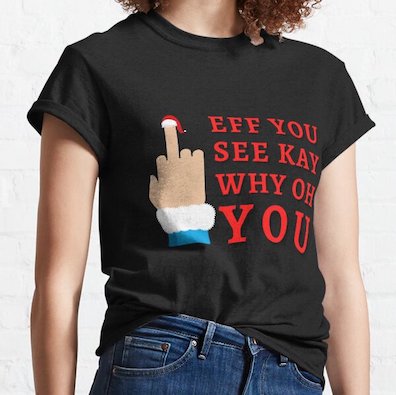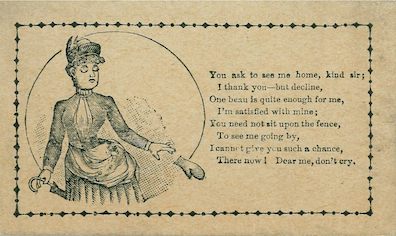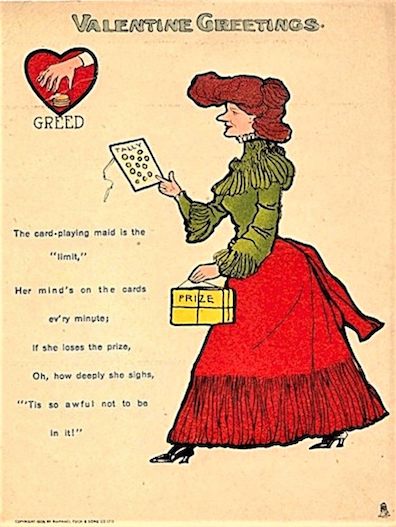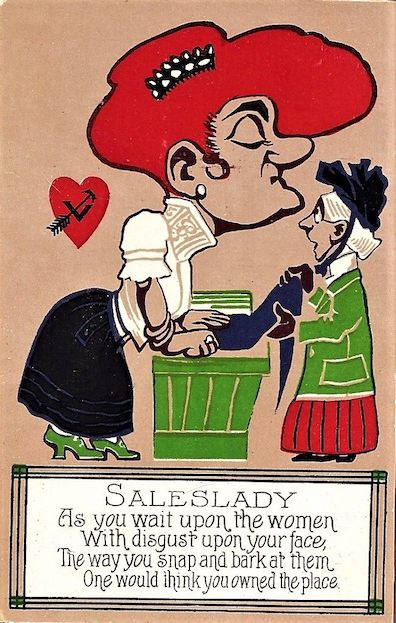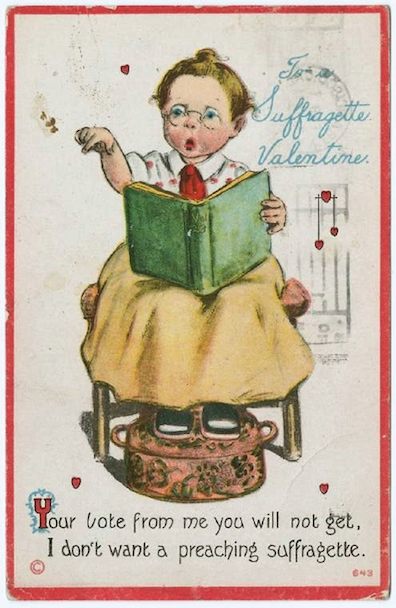After the political and religious apotheosis of Bloom in Circe
has tipped decisively over into sexual derision, he sits
in a pillory while "Artane orphans, joining hands, caper
round him. Girls of the Prison Gate Mission, joining hands,
caper round in the opposite direction." The two groups
of social outcasts ridicule him with crude popular rhymes, one
of them an antiromantic parody of Valentine's Day devotions,
the other a pair of lewd acrostics.
The "Prison Gate Mission" was a charitable institution
founded in 1876 to help young female prisoners return to
productive society. Its inmates chant a ditty that seems
innocuous enough at first glance, but these girls are not
genteel. Like Oliver Gogarty's poem on
the return of the troops to Dublin, their lines conceal
a crude message:
If you see Kay
Tell him he may
See you in tea
Tell him from me.
When spoken, the first line sounds out FUCK, the third one
CUNT. Joyce may have coined these obscenities––no
commentator has yet discovered a precedent––but any dirty mind
could do as much. Various t-shirts these days sport the
message "Eff you see Kay."
The other ditty has a history. The "Artane orphans"––boys
at the O'Brien Institute for Destitute Children, the
charitable institution where Father Conmee hopes to place
Paddy Dignam's son as a result of his "walk to
Artane"––chant these catchy words:
You hig, you hog, you dirty dog!
You think the ladies love you!
In a JJON note, John Simpson quotes similar lines
from "a very old, probably Irish, song" ("You pig, you hog,
you dirty dog / Ya think the girls all love ya / Grand as you
think yerself to be / I think myself above ya"), and also from
"the typescript Diary of Josiah Cocking," an English
work in which a woman named Mrs. Reed writes to a W. Reed that
she is soon to be "married to a proper husband" and will no
longer require his services ("You pig, you hog, you dirty dog,
you think that I do love you; I sent you this to let you know
I think myself far above you").
Such lines appear to have been incorporated into some of the
teasing missives that Victorians and Edwardians called
"vinegar valentines" or "comic valentines," commercial
postcards which substituted contempt for loving sentiments.
Simpson notes that a book called Bell's Life in Sydney shows
Betsy Pumpkin writing a letter to her sister on Valentine's
Day, 1849 about how Doodle Pumpkin has received many insulting
valentines, one of which begins, "You pig, you hog, you ugly
dog, / You think the girls all love you; / You ugly beast, not
fit for a feast, / For the New Zealanders to eat you." The
writer of a 1921 article in the Hull Daily Mail
mentions seeing such a valentine in a shop window. If such
verse was common in mock-valentines, Simpson observes, then
"Bloom is perhaps reminded of his lusty wanderings earlier" in
Circe: "You know I had a soft corner for you.
(Gloomily.) ’Twas I sent you that valentine of
the dear gazelle."
The images displayed here come from Natalie Zarrelli's online
article of 8 February 2017 (updated in 2023) at
www.atlasobscura.com/articles/vinegar-valentines-victorian.
Zarrelli observes that vinegar valentines "were sent
anonymously, so the receiver had to guess who hated him or
her; as if this weren’t bruising enough, the recipient paid
the postage on delivery. In Civil War Humor, Cameron
C. Nickels wrote that vinegar valentines were 'tasteless, even
vulgar', and were sent to 'drunks, shrews, bachelors, old
maids, dandies, flirts, and penny pinchers, and the like'. He
added that in 1847, sales between love-minded valentines and
these sour notes were split at a major New York valentine
publisher. Some vinegar valentines were playful or sarcastic,
and sold as comic valentines to soldiers—but many could really
sting." For Bloom, there can be little doubt that the
intention is to sting.
